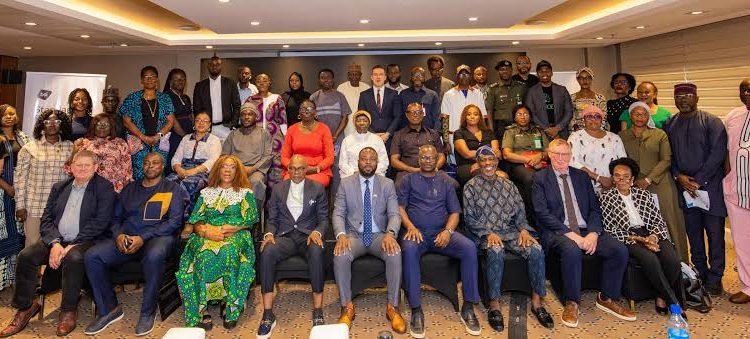Nigeria’s export ambitions received a major push with the unveiling of Phase 3 of the UK-Nigeria Standards Partnership Programme, a strategic collaboration aimed at removing trade barriers, improving product quality, and expanding international market access, especially to the United Kingdom.
The initiative, a joint effort of the UK Foreign, Commonwealth & Development Office and Nigeria’s National Quality Council (NQC), was launched at a high-level event that brought together government stakeholders, private sector players, and international partners. Its goal is to strengthen Nigeria’s quality infrastructure and ensure local products meet global standards.
A key highlight of the event was the revelation that over 3,500 Nigerian products now enjoy zero tariff import access to the UK under the UK’s Developing Countries Trading Scheme. This presents a major opportunity for Nigerian exporters, manufacturers, agribusinesses, and SMEs to tap into premium global markets.
The programme, implemented by the British Standards Institution (BSI), supports Nigeria’s National Quality Policy by focusing on four core pillars: standards, conformity assessment, metrology, and accreditation. It builds on the growing trade relationship between both nations and aligns with the UK-Nigeria Enhanced Trade and Investment Partnership signed in 2023.
Chairman and CEO of the NQC, Ostia Aboloma, described the initiative as a turning point in Nigeria’s trade ecosystem. He said it offers a clear path to increasing export readiness, facilitating smoother import-export processes, and creating jobs while contributing to broader economic growth.
UK Trade Market Access Lead, Simeon Umukoro, underscored the significance of integrating metrology, the science of measurement into Nigeria’s trade infrastructure. According to him, the institutionalisation of metrology marks a first in the country’s trade history and will significantly reduce the rejection rate of Nigerian goods abroad.
He noted that the Standards Partnership directly supports the bilateral trade agreement by addressing regulatory barriers and aligning Nigerian products with international requirements. “This alignment boosts competitiveness and opens stronger roles for Nigerian goods under the AfCFTA and UK markets,” he said.
Mike Pete, Team Lead at BSI, commended Nigeria’s leadership in building a strong quality system, noting that few African countries have a presidentially backed quality council like Nigeria’s NQC. He said Nigeria is now setting a benchmark for how African nations can use quality infrastructure to drive export growth and economic transformation.
The partnership has already delivered key interventions such as technical training for NQC and SON staff, legal support for the National Quality Council Bill, peer evaluation support for the Nigerian National Accreditation System, and pilot schemes in sectors like leather and agro-processing. It has also supported the Standards Organisation of Nigeria (SON) with ISO software implementation and strategic marketing development.
Pete highlighted that many local laboratories previously struggled with poor equipment, undermining trust in inspection and certification processes. He said the programme is working to reverse that by ensuring sustainability and reliability across Nigeria’s quality infrastructure.
Stakeholders at the event emphasized that the Standards Partnership is not just a technical collaboration, but a platform for deep-rooted policy reform and business transformation. A panel session featuring key actors from SON, NiNAS, and others discussed lessons learned and the path forward.
As Nigeria positions itself to increase exports under the African Continental Free Trade Area (AfCFTA) and tap into European markets, officials say building a strong standards system is no longer optional.
“Without strong quality infrastructure, real access to global markets is impossible,” Aboloma said. “We are committed to making sure Nigerian products can compete and win on the global stage.”










